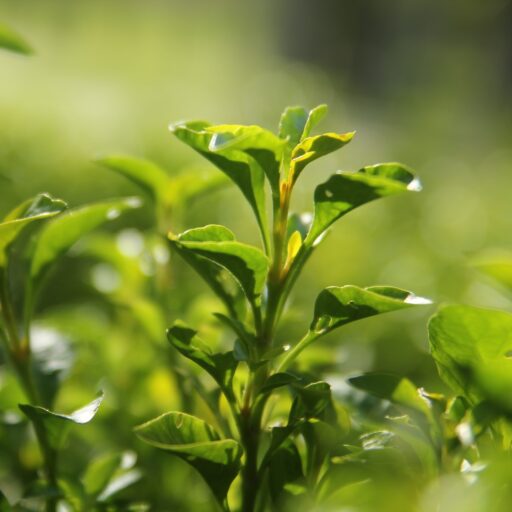Support our educational content for free when you purchase through links on our site. Learn more
American Black Tea: A Journey From Colonial Times to Modern Day [2024] ☕
Have you ever sipped a cup of tea and wondered if it was grown right here in the USA? It might surprise you to know that American black tea is making a comeback, with a growing number of tea farms producing high-quality, flavorful teas. We’re not just talking about the historical Charleston Tea Plantation, but a whole new wave of dedicated tea growers across the country. In this article, we’ll take a deep dive into the history, flavors, and benefits of American black tea, and we’ll even guide you to some of the best places to find it. So, grab your favorite mug, and let’s explore the world of American black tea!
Quick Answer
- American black tea is making a comeback! More and more tea farms are producing high-quality, flavorful teas grown right here in the USA.
- American black tea offers unique flavors influenced by local soil and climate, from bright floral notes to smooth, earthy complexity.
- Supporting American tea farmers is a sustainable choice, promoting local economies and eco-friendly practices.
👉 Shop American Black Tea:
- Charleston Tea Plantation: Amazon | Walmart | Charleston Tea Plantation Official Website
- Great Mississippi Tea Company: Amazon | Walmart | Great Mississippi Tea Company Official Website
- Red Sun Tea Company: Amazon | Walmart | Red Sun Tea Company Official Website
Table of Contents
- Quick Tips and Facts
- The Rise of American Black Tea: A History of Tea Growing in the USA
- Where to Find Black Tea Grown in the USA: A Guide to American Tea Farms
- Exploring the Flavors of American Black Tea: A Tasting Journey
- The Benefits of Drinking Black Tea Grown in the USA
- Brewing the Perfect Cup of American Black Tea: Tips and Techniques
- Black Tea in American Culture: From Colonial Times to Modern Day
- The Future of Black Tea Growing in the USA: Trends and Innovations
- Conclusion
- Recommended Links
- FAQ
- Reference Links
Quick Tips and Facts
Did you know that the USA has a rich history of tea cultivation, dating back to the 18th century? While we’re not exactly known for being a tea-growing powerhouse like India or China, American black tea is making a comeback! 🍵
Here are some quick facts about black tea grown in the USA:
- American black tea is gaining popularity: Consumers are increasingly seeking out locally sourced and sustainable products, and American tea farmers are stepping up to meet this demand.
- The taste is unique: Black tea grown in the USA often has a distinct flavor profile, influenced by local soil and climate. Think bright, floral notes, or a smooth, earthy complexity.
- It’s a sustainable choice: Supporting American tea farmers helps to promote sustainable agriculture practices and local economies.
Want to learn more about growing your own tea? Check out our comprehensive guide on Can You Grow Tea in Your Backyard? The Ultimate Guide to Tea Plant Hardiness Zones 2024 🌱 at https://www.growingteas.com/what-zone-can-you-grow-tea-plants-in/.
The Rise of American Black Tea: A History of Tea Growing in the USA

The story of American black tea is a fascinating one, filled with twists and turns. It all began with the colonists, who were eager to find a source of tea closer to home than the East Indies.
Early Attempts and Challenges
- First Successful Tea Cultivation: In 1772, the first successful tea cultivation was recorded on Skidaway Island near Savannah, Georgia. This was a time of great excitement, but the colonists were facing a major challenge: tea production was labor-intensive and expensive.
- The American Revolution: The American Revolution further hampered tea production in the colonies. The British, who controlled the tea trade, imposed a tax on tea imported from the East Indies. This led to the Boston Tea Party, a pivotal event in the American Revolution.
- The Rise of Coffee: Coffee, a more affordable and readily available beverage, quickly gained popularity in the colonies, overshadowing tea.
The 20th Century: A New Era for American Tea
- The Return of Tea: In the early 20th century, there was a renewed interest in tea cultivation in the USA. The US Department of Agriculture established an experimental tea farm outside Summerville, South Carolina, in 1884.
- The Pinehurst Tea Plantation: In 1888, Dr. Charles Shepard founded the Pinehurst Tea Plantation in North Carolina. This plantation, later purchased by Lipton Tea Company in 1963, became a symbol of American tea production.
- The Rise of Commercial Tea Farms: The late 20th century saw the emergence of several commercial tea farms in the USA, including the Charleston Tea Plantation in South Carolina and the Sakuma Brothers in Washington state.
The 21st Century: A Growing Movement
- The Local Food Movement: The rise of the local food movement in the 21st century has fueled a renewed interest in American-grown tea.
- Sustainability: Consumers are increasingly seeking out sustainable products, and American tea farmers are responding with eco-friendly practices.
- A Growing Market: The demand for American black tea is steadily increasing, with more and more tea lovers discovering the unique flavors and benefits of this homegrown beverage.
Where to Find Black Tea Grown in the USA: A Guide to American Tea Farms
While the USA doesn’t have the vast tea plantations of Asia, there are several dedicated tea farms across the country producing high-quality black tea. Here’s a guide to some of the most notable:
Charleston Tea Plantation (South Carolina)
- A Historic Landmark: The Charleston Tea Plantation is the largest tea plantation in the USA, with over 127 acres of tea plants. It’s a popular tourist destination, offering tours and tastings.
- A Variety of Teas: They produce a wide range of black, green, and oolong teas, as well as flavored teas.
- A Sustainable Approach: The Charleston Tea Plantation is committed to sustainable agriculture practices, using organic fertilizers and pest control methods.
👉 CHECK PRICE on:
- Charleston Tea Plantation: Amazon | Walmart | Charleston Tea Plantation Official Website
Great Mississippi Tea Company (Mississippi)
- A Family-Owned Farm: The Great Mississippi Tea Company is a family-owned and operated tea farm in Brookhaven, Mississippi. They are passionate about bringing tea closer to Americans.
- A Focus on Quality: They produce a variety of black, oolong, green, and herbal teas, all grown and processed with care.
- Farm Tours: They offer farm tours to visitors, giving them a glimpse into the world of tea cultivation.
👉 CHECK PRICE on:
- Great Mississippi Tea Company: Amazon | Walmart | Great Mississippi Tea Company Official Website
Red Sun Tea Company (North Carolina)
- A Small-Scale Operation: The Red Sun Tea Company is a small-scale, hand-picked tea farm in Mars Hill, North Carolina. They are committed to producing high-quality teas using sustainable methods.
- A Focus on Specialty Teas: They specialize in black, green, and oolong teas, with a focus on unique and flavorful varieties.
- A Passion for Tea: The Red Sun Tea Company is passionate about sharing their love of tea with the world.
👉 CHECK PRICE on:
- Red Sun Tea Company: Amazon | Walmart | Red Sun Tea Company Official Website
Other Notable Tea Farms
- Hawaii Tea Company: Hawaii is home to a collective of roughly 40 small tea growers, producing a variety of teas, including black tea.
- Pickens Tea Plantation (South Carolina): This small tea farm in Pickens, South Carolina, is known for its high-quality black tea.
Exploring the Flavors of American Black Tea: A Tasting Journey
American black tea offers a diverse range of flavors, influenced by the unique terroir of each growing region. Here’s a glimpse into the tasting journey:
The Charleston Tea Plantation: A Classic Southern Flavor
- Charleston Black Tea: This tea is known for its smooth, mellow flavor with hints of sweetness and a touch of earthiness. It’s a classic Southern tea that’s perfect for enjoying on a warm afternoon.
- Charleston Oolong Tea: Their oolong tea offers a more complex flavor profile, with notes of fruit, flowers, and a hint of spice.
The Great Mississippi Tea Company: A Southern Blend of Flavors
- Black Tea: The Great Mississippi Tea Company offers a variety of black teas, each with its own unique flavor profile. Some have a bright, floral aroma, while others have a more earthy and robust character.
The Red Sun Tea Company: A Mountainous Flavor Profile
- Black Tea: Their black tea is known for its rich, full-bodied flavor with notes of chocolate, caramel, and a hint of spice. It’s a tea that’s perfect for enjoying on a cool evening.
Tips for Tasting American Black Tea
- Use Fresh Water: Always use fresh, filtered water for the best flavor.
- Steep Properly: Steep the tea according to the instructions on the package. Over-steeping can lead to a bitter taste.
- Taste Blind: Try tasting the tea blind, without knowing the origin or variety. This will help you to focus on the flavor profile.
The Benefits of Drinking Black Tea Grown in the USA
Black tea, like other types of tea, is packed with antioxidants and other beneficial compounds. Here are some of the key benefits of drinking black tea grown in the USA:
Health Benefits
- Antioxidants: Black tea is rich in antioxidants, which can help to protect your cells from damage caused by free radicals.
- Improved Heart Health: Studies have shown that black tea consumption can help to improve heart health by lowering blood pressure and cholesterol levels.
- Boosted Brain Function: Black tea contains caffeine and L-theanine, which can help to improve alertness, focus, and cognitive function.
- Enhanced Immune System: Black tea can help to boost your immune system by fighting off infections and inflammation.
Sustainability Benefits
- Supporting Local Farmers: By choosing black tea grown in the USA, you are supporting local farmers and their sustainable practices.
- Reducing Your Carbon Footprint: Buying tea grown locally reduces the environmental impact associated with transportation and shipping.
Brewing the Perfect Cup of American Black Tea: Tips and Techniques
Brewing the perfect cup of black tea is an art form, but it’s easier than you might think. Here are some tips and techniques to help you get started:
Choosing the Right Water
- Use Fresh Water: Always use fresh, filtered water for the best flavor. Avoid using hard water, which can make the tea taste bitter.
- Heat the Water: Heat the water to the appropriate temperature for the type of tea you’re brewing. Black tea typically requires water that’s heated to between 200-212 degrees Fahrenheit.
Measuring the Tea
- Use a Loose Leaf Tea Infuser: For the best flavor, use a loose leaf tea infuser. This will allow the tea leaves to fully bloom and release their flavor.
- Use the Right Amount of Tea: The amount of tea you use will depend on the type of tea and your personal preference. A general rule of thumb is to use 1 teaspoon of tea per 8 ounces of water.
Steeping Time
- Steep for the Right Amount of Time: Steeping time is crucial for getting the best flavor. Black tea typically requires 3-5 minutes of steeping time. Over-steeping can lead to a bitter taste.
Enjoying Your Tea
- Add Milk or Sugar: Black tea can be enjoyed plain, or with milk or sugar. Experiment with different sweeteners and milk alternatives to find your perfect combination.
Black Tea in American Culture: From Colonial Times to Modern Day
Black tea has played a significant role in American culture, evolving from a colonial staple to a modern-day beverage enjoyed by millions.
Colonial Times: A Symbol of British Influence
- The Boston Tea Party: This pivotal event in American history was sparked by the British government’s tax on tea imported from the East Indies. It symbolized the colonists’ resistance to British rule.
- Tea as a Social Drink: Tea was a popular social drink in colonial America, enjoyed in homes and at tea parties.
The 19th and 20th Centuries: A Shift in Popularity
- The Rise of Coffee: Coffee quickly gained popularity in the 19th century, overshadowing tea.
- The Introduction of Instant Tea: The introduction of instant tea in the 20th century made tea more convenient and affordable, leading to a resurgence in popularity.
The 21st Century: A New Appreciation for American Black Tea
- The Local Food Movement: The rise of the local food movement has led to a renewed interest in American-grown tea.
- Sustainability: Consumers are increasingly seeking out sustainable products, and American tea farmers are responding with eco-friendly practices.
- A Growing Market: The demand for American black tea is steadily increasing, with more and more tea lovers discovering the unique flavors and benefits of this homegrown beverage.
The Future of Black Tea Growing in the USA: Trends and Innovations
The future of black tea growing in the USA is bright, with several trends and innovations shaping the industry.
Growing Demand for Locally Sourced Tea
- The Local Food Movement: The local food movement continues to drive demand for locally sourced products, including tea.
- Sustainability: Consumers are increasingly interested in sustainable agriculture practices, and American tea farmers are responding with eco-friendly methods.
Innovation in Tea Production
- New Tea Varieties: American tea farmers are experimenting with new tea varieties, developing unique flavor profiles and adapting to local climates.
- Technology and Automation: Technology is playing an increasingly important role in tea production, from precision irrigation to automated harvesting.
A Growing Tea Culture
- Tea Education: There’s a growing interest in tea education, with more and more people learning about the different types of tea, brewing techniques, and the history of tea.
- Tea Events and Festivals: Tea events and festivals are becoming more popular, offering opportunities to sample different teas, learn about tea culture, and connect with other tea enthusiasts.
Sign up for TEAMAIL! Get the latest tea news, tips, and recipes delivered straight to your inbox. Sign up here.
Conclusion

The American black tea scene is buzzing with exciting developments! From historic plantations to small-scale farms, a new wave of tea growers is bringing fresh, flavorful, and sustainable tea to the table. We’ve learned about the rich history of tea cultivation in the USA, explored the unique flavors of American black tea, and discovered the benefits of supporting local tea farmers.
As you sip your next cup of tea, consider choosing a black tea grown in the USA. You’ll be supporting a growing movement, enjoying a unique and flavorful beverage, and contributing to a more sustainable future.
Recommended Links
👉 Shop American Black Tea:
- Charleston Tea Plantation: Amazon | Walmart | Charleston Tea Plantation Official Website
- Great Mississippi Tea Company: Amazon | Walmart | Great Mississippi Tea Company Official Website
- Red Sun Tea Company: Amazon | Walmart | Red Sun Tea Company Official Website
Learn More About Tea:
- The Tea Lover’s Companion: A Guide to the World of Tea by James Norwood Pratt: Amazon
- The World Atlas of Tea by Mary Lou Heiss and Robert Heiss: Amazon
FAQ

Is black tea grown in the US?
Yes, black tea is grown in the USA! While the US isn’t a major tea-producing country like India or China, there are several dedicated tea farms across the country producing high-quality black tea.
Read more about “Is black tea grown in the US?”
Can you grow tea trees in the USA?
Yes, you can grow tea trees in the USA! Tea plants are hardy to USDA zones 7-10, so they can be grown in many parts of the country. However, it’s important to choose the right variety for your climate and soil conditions.
What are the best tea varieties for growing in the USA?
- Camellia sinensis: This is the most common tea plant variety, and it’s well-suited to growing in the USA.
- Camellia sinensis var. assamica: This variety is known for its larger leaves and robust flavor. It’s well-suited to growing in warmer climates.
- Camellia sinensis var. sinensis: This variety is known for its smaller leaves and delicate flavor. It’s well-suited to growing in cooler climates.
Read more about “🌱 Grow Your Own Tea Oasis: 10+ Tea Plants You Can Grow at Home …”
Where does the US import black tea from?
The US imports black tea from a variety of countries, including:
- India: India is the world’s largest tea producer, and it’s a major source of black tea for the US.
- China: China is another major tea producer, and it’s known for its high-quality black teas.
- Sri Lanka: Sri Lanka is a major tea producer, and it’s known for its Ceylon black tea, which is characterized by its bright, floral aroma.
- Kenya: Kenya is a major tea producer, and it’s known for its strong, robust black teas.
Read more about “Green Tea vs Black Tea: Unmasking the Truth Behind Your Favorite Brew 🍵 …”
Where is the best black tea grown?
The “best” black tea is subjective, as it depends on personal preferences. However, some of the most highly regarded black teas come from:
- Darjeeling (India): Darjeeling black tea is known for its delicate flavor with hints of floral and muscatel notes.
- Assam (India): Assam black tea is known for its strong, malty flavor with hints of chocolate and caramel.
- Ceylon (Sri Lanka): Ceylon black tea is known for its bright, floral aroma and smooth, mellow flavor.
- Keemun (China): Keemun black tea is known for its smooth, mellow flavor with hints of fruit and chocolate.
Read more about “Can You Grow Tea Plants in the US? 10 Surprising States Where Tea Thrives … 🌱”
Reference Links
- Charleston Tea Plantation: https://www.charlestonteaplantation.com/
- Great Mississippi Tea Company: https://www.greatmsteacompany.com/
- Red Sun Tea Company: http://www.redsuntea.com/
- Tea Production in the United States: https://tea.fandom.com/wiki/Tea_production_in_the_United_States#:~:text=Sakuma%20Brothers%20commercially%20produces%20tea,Sakuma%20Market%20Stand%20in%20Burlington.
- Growing Tea Plants – Raintree Nursery: https://raintreenursery.com/pages/growing-fruit-trees-teanspices#:~:text=Tea%20plants%20are%20hardy%20to,survive%20when%20properly%20hardened%20off.


